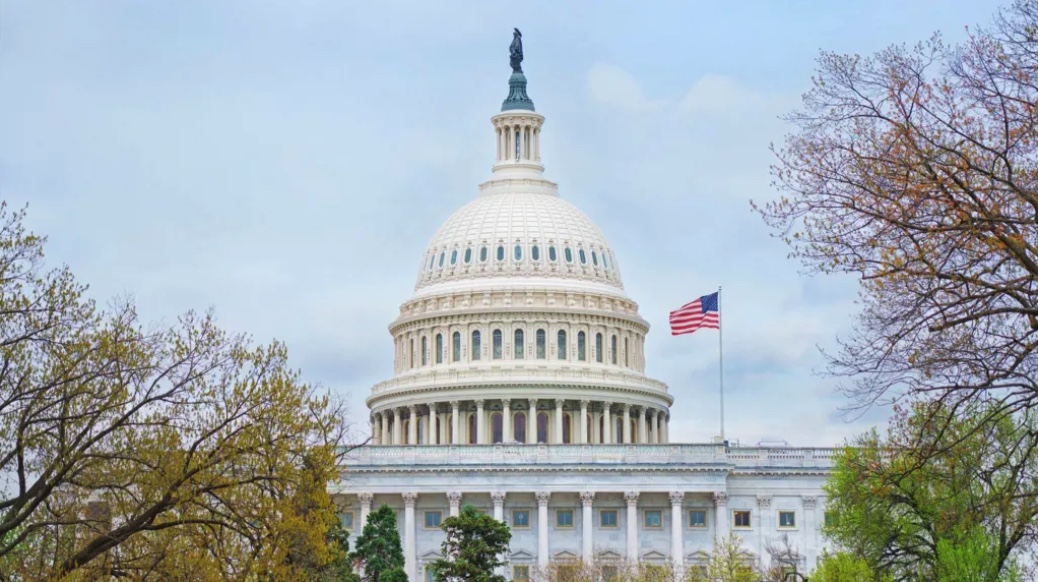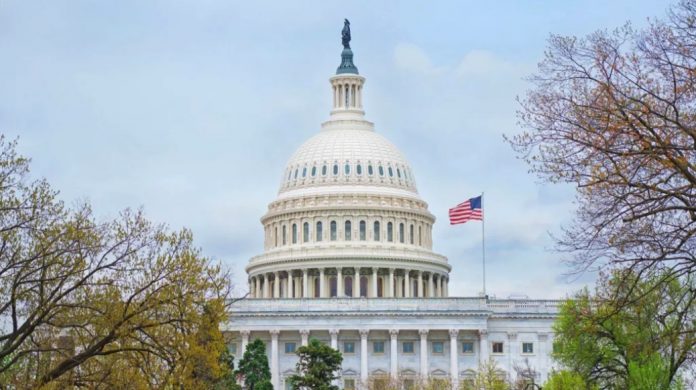ในคืนการเลือกตั้ง โดนัลด์ ทรัมป์ กล่าวซ้ำว่า “สัญญาที่ให้ไว้ เราทำตามสัญญา” ตอนนี้พรรครีพับลิกันได้ครองสภาคองเกรสอย่างเป็นทางการ ทำให้ “สัญญา” เหล่านั้นสามารถทำได้ง่ายขึ้น
ในภาษาการเมืองของวอชิงตัน นี่เรียกว่า “สามขุมอำนาจแห่งการปกครอง” (governing trifecta) ซึ่งหมายถึงกรณีที่พรรคของประธานาธิบดีควบคุมทั้งสองสภาในสภาคองเกรส นั่นคือ สภาผู้แทนราษฎรและวุฒิสภา ซึ่งตอนนี้เป็นสถานการณ์ที่พรรครีพับลิกันของโดนัลด์ ทรัมป์กำลังมีอยู่
การควบคุมของพรรคเดียวเคยเป็นเรื่องปกติ แต่ในช่วงไม่กี่ทศวรรษที่ผ่านมาเกิดน้อยลงและสั้นลง มักจะเกิดขึ้นว่าพรรคที่มีอำนาจมักเสียที่นั่งเมื่อการเลือกตั้งกลางเทอมของสภาคองเกรสเกิดขึ้นอีกสองปีหลังจากการเลือกตั้งครั้งแรก
ทั้งทรัมป์และโจ ไบเดนต่างก็มีสามขุมอำนาจในช่วงสองปีแรกที่อยู่ในทำเนียบขาว แต่พวกเขาก็ได้เห็นแล้วว่าการมีอำนาจนั้นไม่ได้เป็นหลักประกันว่าประธานาธิบดีจะสามารถทำตามความต้องการได้ทั้งหมด
ในช่วงสองปีแรกของเขา ทรัมป์สามารถออกกฎหมายเกี่ยวกับภาษีที่เป็นเอกลักษณ์ได้ โดยลดภาษีบริษัทจาก 35% เป็น 21% และลดภาษีบางประการสำหรับบุคคลทั่วไป แต่ด้วยความขัดแย้งจากสมาชิกพรรคบางคนที่ไม่ค่อยยินดีกับการขึ้นสู่อำนาจของทรัมป์ในปี 2016 เขาจึงพบอุปสรรคในเป้าหมายอื่น ๆ แผนการยกเลิกกฎหมายประกันสุขภาพ Affordable Care Act (หรือที่รู้จักกันในชื่อ Obamacare) ล้มเหลวเมื่อวุฒิสมาชิกจากพรรคของเขาเอง จอห์น แมคเคน ปฏิเสธการลงคะแนนเสียง นอกจากนี้เขายังล้มเหลวในการผ่านกฎหมายด้านโครงสร้างพื้นฐานตามที่เคยให้สัญญาไว้
ในช่วงสองปีแรกที่พรรคเดโมแครตควบคุมทั้งสภาผู้แทนราษฎรและวุฒิสภา ไบเดนสามารถผ่านแผน American Rescue, Investment and Jobs Act และ Chips and Science Act แต่เขาก็ต้องลดขนาดแผนการใช้จ่ายและการลงทุนของเขาอย่างมาก ซึ่งเดิมเรียกว่าแผน Build Back Better หลังจากเผชิญกับการคัดค้านจากวุฒิสมาชิกคนหนึ่งในพรรคของเขาเอง
อุปสรรคสำคัญที่ทำให้ไม่สามารถควบคุมได้ทั้งหมดคือร่างกฎหมายในวุฒิสภาต้องการเสียงข้างมาก 3 ใน 5 หรือ 60 เสียง เพื่อหลีกเลี่ยงการอภิปรายยืดเยื้อ ซึ่งหมายความว่าแม้จะมีเสียงข้างมากเพียงเล็กน้อยในวุฒิสภา ก็ยังต้องอาศัยความร่วมมือจากฝ่ายตรงข้ามเพื่อให้ร่างกฎหมายผ่านได้
แม้ว่าครั้งนี้รีพับลิกันจะมีเสียงข้างมากในวุฒิสภา แต่ทรัมป์ยังไม่มีเสียงมากถึง 60 เสียงที่จะเอาชนะการต่อต้านการเลื่อนการพิจารณากฎหมายได้ นอกจากนี้ เมื่อวันพุธที่ผ่านมา พรรครีพับลิกันในวุฒิสภาเลือก จอห์น ธูน ให้เป็นผู้นำเสียงข้างมาก แทนที่จะเป็น ริค สก็อตต์ จากฟลอริดา ซึ่งเป็นที่โปรดปรานของฝั่งทรัมป์ สะท้อนให้เห็นว่ามีสมาชิกบางคนอาจยืนยันความเป็นอิสระของตนอีกครั้ง (โดยที่ทรัมป์ไม่ได้สนับสนุนสก็อตต์อย่างเป็นทางการ)
อย่างไรก็ตาม การควบคุมทั้งสามฝ่ายถ้าจัดการอย่างชาญฉลาดก็เปิดโอกาสให้มีการริเริ่มด้านนโยบายที่สำคัญ ทรัมป์อาจใช้ความได้เปรียบในการผลักดันคำมั่นสัญญาใหญ่ ๆ เช่น การเนรเทศผู้อพยพครั้งใหญ่ที่สุดในประวัติศาสตร์ การใช้ภาษีจำนวนมากกับสินค้านำเข้า และการย้อนกลับกฎการคุ้มครองสิ่งแวดล้อม การใช้กฎหมายเพื่อให้บรรลุเป้าหมายเหล่านี้จะทำให้แผนการเหล่านี้ยากที่จะถูกคัดค้านในศาล ซึ่งเป็นปัญหาที่ทรัมป์เคยเผชิญในวาระแรกของเขาเมื่อเขาใช้คำสั่งฝ่ายบริหารเป็นจำนวนมากและมักถูกท้าทายอย่างสำเร็จในศาล
สถานการณ์ด้านตุลาการก็เปลี่ยนไปในทิศทางที่เป็นประโยชน์กับทรัมป์เช่นกัน ผลงานเด่นในวาระแรกของเขาคือการแต่งตั้งผู้พิพากษาฝ่ายอนุรักษ์นิยม 3 คนในศาลสูงสุด ทำให้ศาลมีเสียงข้างมากถึง 2 ใน 3 ซึ่งอาจคงอยู่นานหลายทศวรรษ เขายังแต่งตั้งผู้พิพากษามากกว่าสี่สิบคนในศาลอุทธรณ์รัฐบาลกลาง ทำให้หลายเขตมีแนวคิดทางการเมืองที่อนุรักษ์นิยมมากขึ้น
การที่รีพับลิกันมีเสียงข้างมากในวุฒิสภายังเป็นข้อได้เปรียบสำคัญอีกด้วย ทรัมป์จะสามารถแต่งตั้งผู้สมัครรับตำแหน่งในรัฐบาลได้ง่ายขึ้น ซึ่งเป็นสิ่งที่เขาพบว่าเป็นอุปสรรคในปี 2017 เนื่องจากมีการต่อต้านเขาภายในพรรครีพับลิกันอย่างมาก
ทั้งหมดนี้อาจนำไปสู่สองปีข้างหน้าที่มีการเคลื่อนไหวและอาจเกิดความปั่นป่วน แต่ตามที่ประวัติศาสตร์เมื่อไม่นานนี้แสดงให้เห็นว่า การควบคุมทั้งสามฝ่ายมักไม่คงอยู่นานนัก รัฐบาลที่เข้ามาใหม่ต้องรีบเร่ง
Trump has full control of government – but he won’t always get his way

On election night, Donald Trump repeated the phrase: “Promises made, promises kept.”
Now, Republicans have officially taken control of Congress and his “promises” are a whole lot easier to keep.
In Washington political parlance, it’s called “a governing trifecta”, when the president’s party also controls both chambers of Congress – the House of Representatives and the Senate.
That control is what Donald Trump’s Republican Party now has.
Single-party control was once common, but in recent decades it has become rarer and shorter. Often, the party in power loses seats when midterm congressional elections roll around two years later.
Both Trump and Joe Biden enjoyed trifectas for their first two years in the White House, but they also saw that having such control is no guarantee a president can get their way.
In his first two years, Trump passed a signature tax bill – reducing corporate taxes from 35% to 21%, and cutting some taxes on individuals.
But with some members of his own party resistant to his surprise ascent to the top in 2016, he struggled with other aims.
His plan to repeal the Affordable Care Act (known as Obamacare) failed when a senator from his own party, John McCain, refused to vote for it. He also failed to pass an infrastructure bill as he had promised.
In his first two years, when the Democrats controlled the House and the Senate, Biden succeeded in passing the American Rescue plan, the Investment and Jobs Act, and the Chips and Science Act. But he, too, had to significantly scale back his sending and investment plans – touted as the Build Back Better package – after opposition from one of his own senators.
A major impediment to total control for either party is that Senate bills require a three-fifths majority, or 60 votes, to bypass the filibuster, which enables senators to delay legislation by keeping debate open-ended. That means that when a party has a simple majority in the Senate, it needs to reach across the aisle to get a bill passed.
Even with a healthy majority in the Senate this time around, Trump will not have the magic 60 seats that would allow him to overcome opposition attempts to delay legislation.
And on Wednesday, Republicans in the Senate selected John Thune as their majority leader over Florida’s Rick Scott, the clear favourite in the Trump camp, in a sign some lawmakers may be reasserting their independence (Trump did not officially endorse Scott).
That said, a trifecta, if astutely managed, does open the way for the possibility of major legislative initiatives.
Trump’s power advantage could be key in pushing through his big promises such as the largest deportation of migrants in history, sweeping tariffs on foreign imports, and the rolling back of environmental protections.
Using legislation to achieve these ends will make such plans much harder to overturn in the courts – something Donald Trump was plagued by in his first term when he extensively used executive orders that were regularly and often successfully challenged.
The judicial landscape also has changed in Trump’s favour.
The signature achievement of his first term was putting three conservatives on the Supreme Court – cementing a two-thirds majority for possibly decades to come.
He also named more than four dozen judges to the federal appeals courts, flipping several circuits to a more conservative bent.
The majority Republicans have in the Senate also provides a key advantage.
Trump will be able to get his nominees for administration posts approved more easily, something he struggled with back in 2017 when internal resistance to him in the Republican Party was still significant.
All this bodes for a busy and possibly turbulent next two years. But, as recent history indicates, these trifectas don’t last all that long. The incoming administration will want to get a move on.
By Gary O’Donoghue, BBC News

















